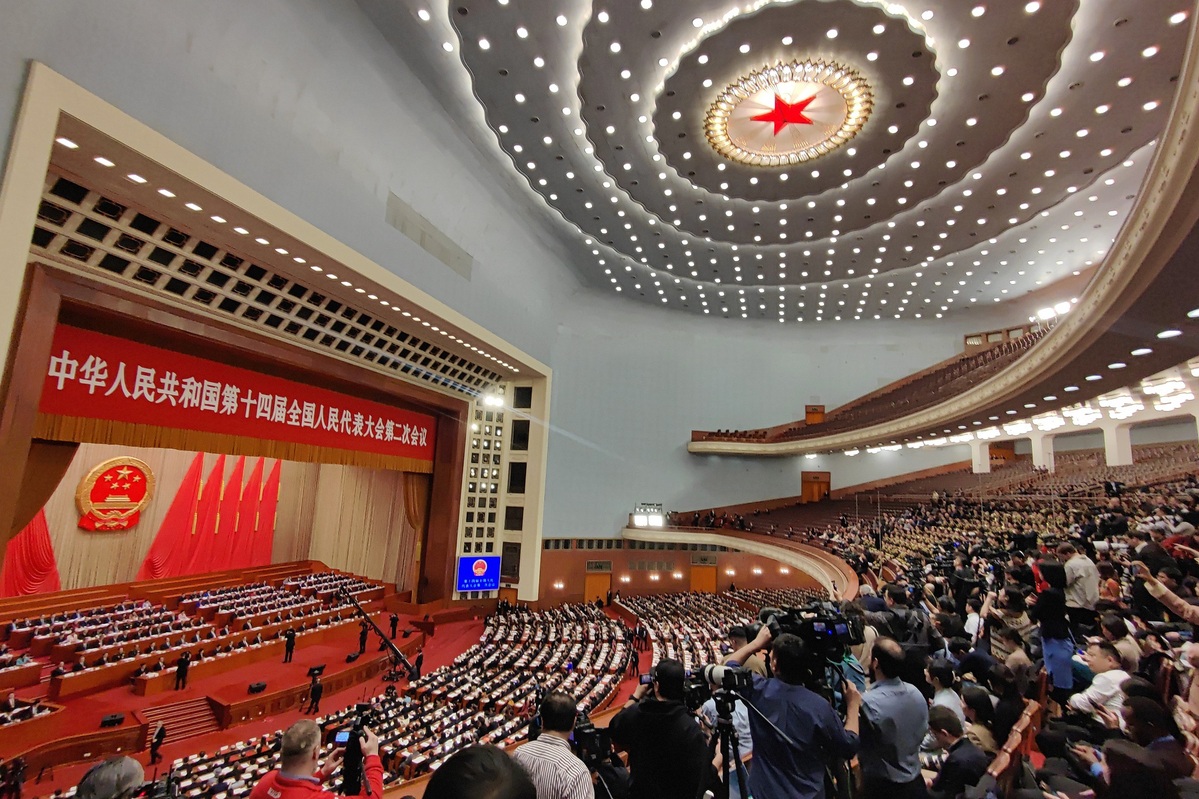Annual event offers window into Chinese leadership's priorities


In the grand tapestry of international politics and economic strategies, China's annual two sessions in Beijing stands out as an event that encapsulates the aspirations, challenges and strategic roadmap of the nation and resonates with the world.
The annual meetings of the nation's top legislative and political advisory bodies represent a reflection of China's governance model — a blend of top-down directives and bottom-up democratic mechanisms — which is designed to navigate the country through the tumultuous waters of global uncertainties.
The significance of the two sessions cannot be overstated. It is here that China's legislative framework and policy directions for the year ahead are unveiled, touching upon every facet of governance, from economic growth targets and military spending to environmental policies and social welfare.
The National People's Congress, China's top legislature, and the Chinese People's Political Consultative Conference, an advisory body that draws members from various sectors of society, together embody the spirit of collective decision-making and policy formulation that is characteristic of the whole-process people's democracy in China's political ethos.
Why do these sessions matter to the world at large? The answer lies in the sheer impact of China's domestic policies on the global stage. The growth trajectory of China, the world's second-largest economy, as well as its commitment to combating climate change and its technological ambitions have far-reaching implications for global markets, international security and environmental sustainability. The two sessions event offers a window into the Chinese leadership's priorities and the approach to addressing internal challenges and the external geopolitical landscape.
The annual gatherings were particularly noteworthy for several reasons. Against the backdrop of a global economic slowdown, China set forth an economic growth target both pragmatic and reflective of a strategic shift toward high-quality development, at around 5 percent GDP growth this year. This underscores China's recognition of the need for a sustainable economic model that balances growth with environmental stewardship and social equity.
One of the most significant announcements of the two sessions was the emphasis on technological self-reliance and innovation. In a world where technological supremacy is increasingly synonymous with economic and military power, China's commitment to bolstering its research and development capabilities signals a long-term strategy to navigate the complexities of global technological competition and security.
This focus on tech self-reliance is not just about economic growth; it is also a strategic imperative aimed at ensuring China's sovereignty in the digital age.
Environmental conservation and the transition to a green economy were also central themes of the two sessions. China's leadership reiterated its commitment to the 2015 Paris climate agreement and announced substantial investments in renewable energy sources, reflecting a keen awareness of the existential threat posed by climate change. This agenda, ambitious in its scope, is indicative of China's role as a key player in global efforts to combat climate change, balancing its economic aspirations with environmental responsibilities.
The 2024 two sessions also placed a strong emphasis on social welfare and demographic challenges. With policies aimed at improving healthcare, education and housing, the Chinese government signaled its commitment to fostering a harmonious society by tapping into rural vitalization and helping vulnerable social groups. Measures to support family development and encourage higher birth rates were introduced, addressing the pressing issue of an aging population and its implications for China's economic and social future.
The policy directions and legislative actions emanating from the two sessions are a testament to China's strategic foresight and its adaptability in the face of both domestic and international challenges. The sessions serve as a barometer for China's policy priorities and its vision for the future, offering insights into the leadership's approach to governance, development and global engagement.
As we analyze the outcomes of the 2024 two sessions, it becomes evident that China is steering itself toward a new epoch. Peaceful modernization for all members of society will be characterized by a balanced pursuit of economic growth, technological innovation, environmental sustainability and social welfare.
The decisions made and the policies formulated during these sessions are not merely for the annals of China's legislative history. They are the building blocks of China's future and, by extension, the future of geopolitics and global economics.
The annual meetings reflect China's evolving political landscape and the country's impact on the global stage. They offer a glimpse into the strategic thinking of the Chinese leadership for navigating the complexities of modern challenges.
The author is deputy editor-in-chief of Pakistan Economic Net and Daily Ittehad Media Group.
The views do not necessarily reflect those of China Daily.
































